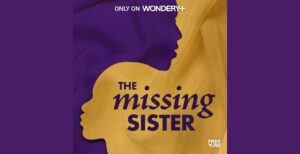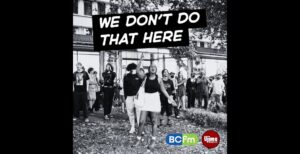Mind the Kids is a new podcast from the Association for Child and Adolescent Mental Health bringing resources to anyone interested in child and adolescent mental health.
This new series from ACAMH, which has been producing top 50 science podcasts since 2018, bridges the gap between rigorous research and practical application, with expert discussions on mental health.
It caters to clinicians, researchers and those interested in mental health as an accessible way to stay informed about latest advancements in the field.
The podcast is hosted by Dr Jane Gilmour – Consultant Clinical Psychologist (Hon) at Great Ormond Street Hospital, and Course Director for postgraduate child development programmes at University College London, and Umar Toseeb, Professor and Director of the Child and Adolescent Neurodevelopmental Diversity group and Research Centre Leader for the Psychology in Education Research Centre.
Each episode highlights cutting-edge studies offering insights into findings, and implications for practice.
Focusing on a specific topic in mental health literature each week – and in conversation with relevant academic authors and experts – the hosts sift through the data, the dilemmas and the debates to leave listeners with key takeaways.
In episode one, the hosts explore the question of how worried we should be about the “Manosphere” with Professor Harriet Over from the Department of Psychology at the University of York and leading author of the paper “What Do We Need to Know about the Manosphere and Young People’s Mental Health?”.
The conversation quickly turns to the hit-Neflix-series Adolescence which shines a light on the misogyny inflicted by young boys who are radicalised by social media algorithms and influencers like Andrew Tate.
Prof. Over says: “What stuck with me is the sense of ambiguity on why the boy did what he did and what the contribution of the Manosphere was compared to the bullying he experienced. It’s hard to know the cause and Adolescence conveyed the complexity very well.”
Dr. Jane Gilmour agrees and gives practical advice for adults dealing with young people who engage with harmful content online: “My first question is to take this from a position of curiosity. ‘Why are you watching this?’ As a parent or teacher, it’s quite anxiety provoking if you come across it, but our calm and curiosity led approach is much more likely to find out what’s going on.”
She continues: “Young boys, especially teenage boys, want to feel powerful, and that’s okay. Making clear that you don’t dismiss those things as inherently bad will allow us to pull apart the difficult content in the Manosphere.
“What never works in clinical practice is telling kids off and shaming them for watching this content. It’s more likely to polarise you further away from where they are and you need to draw them closer.”
They also speak about race and racism in the context of misogyny, and how we need to communicate and understand misogyny while accepting cultural differences.
Upcoming episodes include an interview with Dr. Pete Etchells who is a professor of psychology and science communication talking about social media.
Mind The Kids is available on all major podcast platforms with episodes released on Wednesdays.






